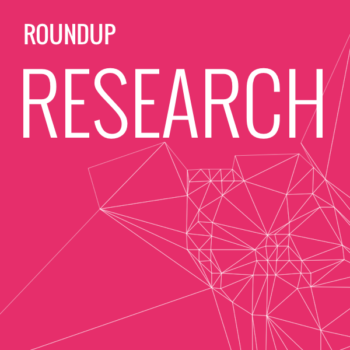The 'Imagination Gap'; Christmas Winners
by Hugh Williams on 19th Jan 2017 in News

ExchangeWire Research’s weekly roundup brings you up-to-date research findings from around the world, with additional insight provided by Rebecca Muir, head of research and analysis, ExchangeWire. In this week’s edition: The 'imagination gap'; Christmas winners; IoT & VR are priorities across Europe; and a need for digital innovation.
The 'imagination gap'
The UK’s retail market could be boosted by as much as £1bn per-year, if consumers were given access to visualisation technology which allowed them to virtually place products in their own homes before committing to costly purchases, research by DigitalBridge discovers.
It found that more than a third of consumers have walked away from making purchases in the last 12 months, just because they couldn’t imagine what products (including furniture, wallpaper, and new flooring) would look like in their homes.
This 'imagination gap' has emerged as a serious concern for UK retailers, particularly those selling home interior products. Especially considering that 56% of homeowners are planning to make some kind of home upgrade in 2017, with budgets ranging from £500 to more than £3,000 per project.
Some major retailers have already grasped the potential of this technology, investing in smaller startups that can help them bring augmented reality platforms to market. High street giant John Lewis became one of the most recent companies looking to bring augmented reality technology on board as a business tool.
Christmas winners
House of Fraser and Tesco were the high street winners this Christmas, according to location-marketing specialists xAd.
Overall, 23rd December saw the highest average number of visitors across all grocery brands, at 40% higher than the average December footfall. Although it came fifth, Waitrose, on Christmas Eve, actually saw a 16% higher uplift in foot traffic compared to other supermarkets, as shoppers picked up their last minute luxury items.
Looking at specific timings, foot traffic peaks in supermarkets at 1pm. However, Morrison’s on average was most popular in the morning between 8am and 11am, as consumers pick up food before work, while ASDA saw the highest peak in the evening between 6pm and 9pm.
Higher than average footfall was recorded overall across shopping centres, department, and grocery stores in the five days leading up to Christmas, compared to the rest of December. In fact, shopping centres saw a 24% increase in foot traffic during this time, compared to the December average.
IoT & VR are priorities across Europe
For UK marketers, both the Internet of Things (42%) and virtual reality (39%) top the list of technologies they plan to include in their marketing strategies for 2017, according to a study by Marketo.
In terms of technologies that UK marketers anticipate customers will be using within the next year, VR dominates expectations, with nearly half of respondents (45%) anticipating greater adoption in 2017.
All across Europe, the focus for 2017 strategies places VR (29% France and 40% Germany) and IoT (47% France and 42% Germany) at the top. However, nearly a third (31%) of French marketers admit they are unsure how new touchpoints will affect their ongoing customer relationships in 2017. Similarly, a fifth (19%) of German marketers are worried they haven’t yet mastered all of the touchpoints they currently have.
Interestingly, the area many marketers are looking for support with is managing the data being generated by digital interactions. More than a third (38%) of UK respondents said that a platform to keep up with the speed and volume of interactions was the single most needed solution to successfully maintain customer relationships in 2017.
A need for digital innovation
UK businesses have extreme fears for the survival of their businesses, says a study by digital transformation business Squiz. Over three-quarters (80%) believe they could be displaced by a new business that focuses on technology within the next five years.
Almost half (44%) of respondents say that their business is the same, if not similar, as it was 10 years ago, highlighting that they have not changed strategy or adapted to the digital world. To prevent future disruption, however, it’s clear that innovation is now essential in order to keep up with competitors and drive business forward in the 21st century.
The report also highlights that UK businesses are too slow to innovate and adopt leading-edge technologies. Only a quarter of UK businesses (24%) are currently using AI and VR, and almost half (46%) will not be ready to use AI for the next year. A further 44% will not be ready to work with VR for another 12 months either. Surprisingly, London is one of the regions lagging behind, with only 27% of businesses based in the capital working with VR, and only 29% working with AI technologies.








Follow ExchangeWire